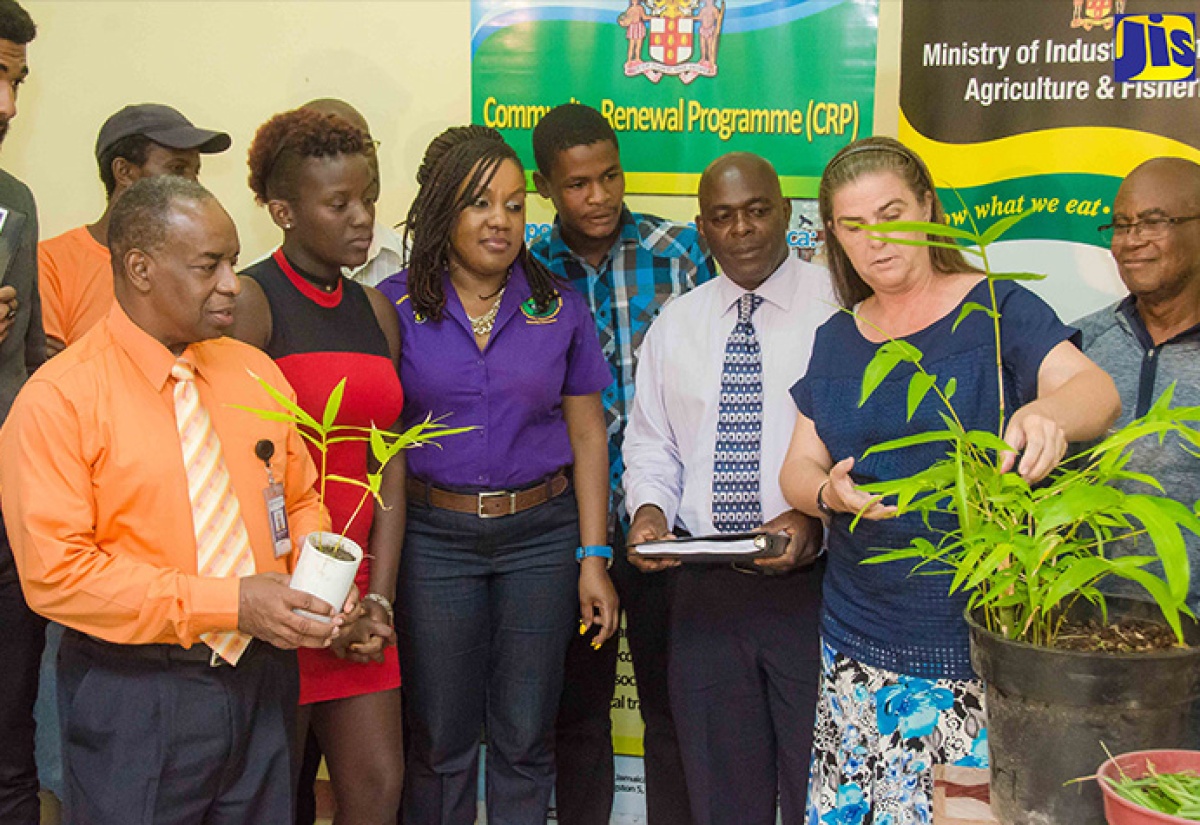Scores trained under Peckham Bamboo Project
By: , November 1, 2017The Key Point:
The Facts
- The training was conducted under the Peckham Bamboo Project, which is being undertaken through US$130,000 from the Organization of American States (OAS). The Embassy of China also provided $1.5 million for the undertaking.
- Aspects of the project include training in bamboo cultivation and by-product manufacturing methodologies and techniques, tissue culture research, supporting the development of a bamboo policy framework, facilitating organic certification of bamboo farms, and establishing a pre-processing plant.
The Full Story
Eighty young people from communities in and around Peckham, Clarendon, have been trained and certified in the production of bamboo by-products, including the infusion of bamboo in light-emitting diode (LED) technology.
The training was conducted under the Peckham Bamboo Project, which is being undertaken through US$130,000 from the Organization of American States (OAS). The Embassy of China also provided $1.5 million for the undertaking.
With the skills learnt, the young people, aged 18 to 35, will be better able to gain employment or start their own economic ventures, enabling them to earn a living and contribute to the development of their communities.
For Ronette Allen, who is a cosmetologist, the training has provided her with another avenue through which she can increase her earning potential.
Jason Grandison, who is one of five persons trained as trainers, says he will be engaged in imparting skills to others.
He notes that a major benefit of the project is that it “allows you to become entrepreneurs”.
The Peckham Bamboo Project, which got under way in 2015, is being executed by the Clarendon Municipal Corporation (CMC), with oversight and monitoring from the Planning Institute of Jamaica (PIOJ).
It aims to create employment and entrepreneurial opportunities through bamboo cultivation, usage, training and production of bamboo by-products.
Aspects of the project include training in bamboo cultivation and by-product manufacturing methodologies and techniques, tissue culture research, supporting the development of a bamboo policy framework, facilitating organic certification of bamboo farms, and establishing a pre-processing plant.
To date, 10 farmers have been trained and have developed expertise in planting bamboo using the tissue culture method. The National Environment and Planning Agency (NEPA) has given permission to proceed, and two new species of bamboo will be imported for further research and study.
Technical Specialist with the PIOJ, Charmaine Brimm, tells JIS News that the intention is to replicate the project in other bamboo-growing communities across the island.
As such, she says, everything is being done to ensure that it is successful.
“The entire project is going to be far-reaching. Persons will be making crafts for the tourism market using the bamboo plant. It has tremendous potential for the community, the region and internationally,” she notes.
She commends the young people who received training, noting that the benefit of the certification is that it will enable them to obtain jobs outside of their community.
“It provides immediate employment. Though they were trained in Peckham they can work anywhere,” she points out.
The Bureau of Standards Jamaica (BSJ) is spearheading the development of a viable bamboo industry in Jamaica, including the policy framework.
BSJ Executive Director, Stephen Wedderburn, tells JIS News that bamboo offers tremendous potential, citing the use of the product in the construction industry and the making of furniture for schools.
He says of particular interest is the export of organic charcoal. “There is quite a potential for the export market… . Already, we are exporting; there is a demand. As much as we can produce, we will be able to export,” he points out.
He is encouraging more people to focus on bamboo, noting that because it is a fast-growing plant, it offers a more environmentally friendly option than chopping down trees.
In commending the young people trained, Mr. Wedderburn urged them to put their new skills to good use.
“We are getting them into an industry with a lot of potential. Bamboo provides a platform on which this community can be built up and grow to higher heights,” he says, noting that the BSJ will ensure that standards are maintained in the sector.
Peckham Community Development Committee Chairman, Vernon Richardson, hails the project, noting that it “offers opportunities for the future”.
He says that although the initiative is in the early stages, “I look forward with hope that our community can prosper”.
Councillor for the Chapelton Division, Hershel Brown, for his part, says it is exciting to know that an indigenous renewable resource can be used to drive the community’s renewal.
“It offers significant potential for the empowerment in our rural community,” he points out.
Other stakeholders in the project include the National Housing Trust (NHT), which contributed $12 million; Caribbean Local Economic Development Project (CARILED) $500,000; University of the West Indies (UWI) Biotechnology Centre; Social Development Commission (SDC); Ministry of Industry, Commerce, Agriculture and Fisheries; and the HEART Trust/NTA.


